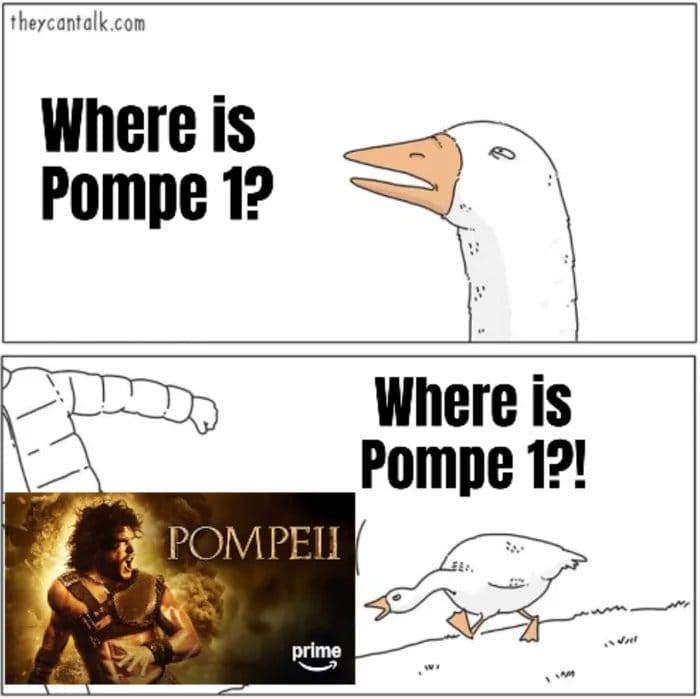this post was submitted on 14 Feb 2025
245 points (98.4% liked)
Rough Roman Memes
574 readers
46 users here now
A place to meme about the glorious ROMAN EMPIRE (and Roman Republic, and Roman Kingdom)! Byzantines tolerated! The HRE is not.
RULES:
-
No racism, sexism, homophobia, transphobia, bigotry, etc. The past may be bigoted, but we are not.
-
Memes must be Rome-related, not just the title. It can be about Rome, or using Roman aesthetics, or both, but the meme itself needs to have Roman themes.
-
Follow Lemmy.world rules.
Not sure where to start on Roman history?
A quick memetic primer on Republican Rome
A quick memetic primer on Imperial Rome
founded 8 months ago
MODERATORS
you are viewing a single comment's thread
view the rest of the comments
view the rest of the comments

Explanation: 'I' is both a Latin letter and a numeral. In Roman numerals, two numbers next to each other add together - as in, 'II' is '2'. This joke is making fun of the fact that ii is both a very common ending for Latin words (something to do with grammar, Latin grammar is a nightmare), and the number 2 (as in, a sequel and not an original).
THEY GAVE US POMPE II, BUT NOT POMPE I
YOU TAKE THAT BACK
I was a Latin tutor for a while, grammar was actually my favourite part. I used quizzing my students on the meaning of words to conceal when I wasn't sure myself because I never did get along with memorising vocabulary (though seeing words used does help remember them).
It's mostly because of the suffix -ius /jus/, added to nouns to form adjectives. Both the nominative plural and genitive singular of that suffix are -iī /ji:/, so if you're talking about multiple of that thing or something belonging to that thing, it gets the -iī.
Here's a totally serious video representing the true pronunciation of the suffix and totally not some internet meme. (Yup, it's like that "yee".)
It gets worse in this word though. Classical pronunciation was likely /pom.pej.ji:/, both the first and second "i" were long, or like you had three "i" in a row. And this mess wasn't even originated in Latin, but a Southern relative called Oscan.